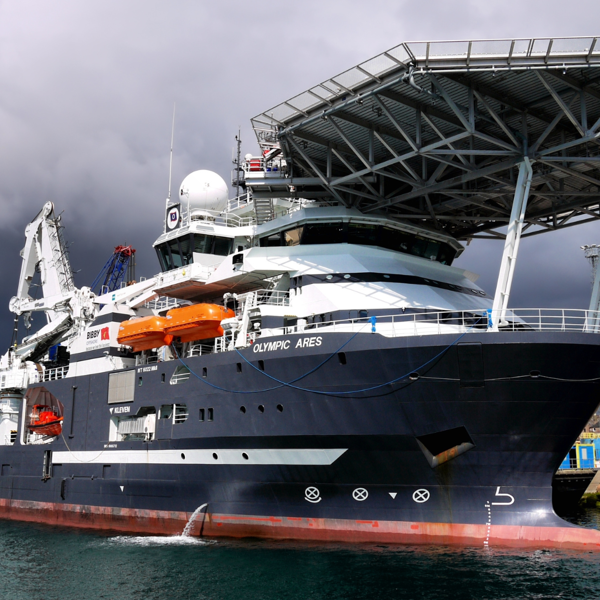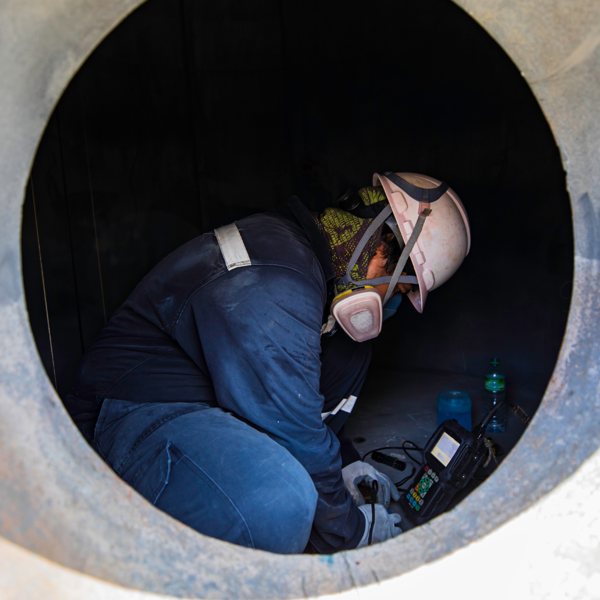IMCA has released its annual eCMID Inspection Findings and Quality Assurance Report, offering a comprehensive review of vessel inspection results and quality assurance processes for the 2024/25 period.
The report continues to serve as a vital resource for the offshore industry, highlighting immediate priorities and mapping a long-term course for safety and compliance.
The eCMID system, comprising both the eCMID Vessel Inspection and the eCMID Small Vessel Inspection, recorded a significant rise in inspection activity. Figures to April 2025 show a 16% increase in inspections year-on-year, reflecting greater industry engagement with IMCA’s safety and assurance initiatives.
Based on a total of 1,896 inspections conducted over the period, the report shares valuable insights into vessel compliance across a range of categories:
Key Findings: eCMID Vessel Inspections (≥500gt)
When looking at the 896 eCMID Vessel Inspection reports, it was found that 8% (73) of vessels had high risk findings, outdated certifications, inadequate confined space entry controls, and missing lock-out/tag-out procedures.
- Pilot ladders: 11% lacked valid certification, while 10% did not maintain proper inspection records.
- Firefighting equipment: 7% of vessels had either insufficient or defective systems in place.
- Cybersecurity: 8% of vessels were without a formal incident response plan, underscoring a growing need for digital resilience.
Key Findings: eCMID Small Vessel Inspections (<500gt)
The 1,000 inspections of small vessels revealed similar safety trends:
- 235 vessels showed water ingress into below-deck spaces.
- 63 were found with fuel or oil leakages in machinery spaces.
- 83 lacked life-saving appliance (LSA) training manuals on board.
As of December 2024, the system recorded a peak of 864 'Vessel' and 993 'Small Vessel' live reports. Today, more than 530 vessel operators now have at least one vessel covered by a live inspection.
Since the introduction of mandatory participation by Accredited Vessel Inspectors (AVIs) in January 2018, more than 12,600 inspection reports have been uploaded, adding up to over 13,900 entries. The community of over 400 AVIs worldwide continues to play a vital role in upholding global inspection standards.
The report also reflects the substantial impact of IMCA’s ongoing commitment to quality assurance (QA), with enhancements driven by the eCMID Committee since the QA initiative’s inception in 2022 – 94% of inspection reports now include closing meeting documentation between inspectors and vessel crews.
New templates for both eCMID Vessel Inspection and eCMID Small Vessel Inspection have been introduced to improve consistency and usability and inspectors are encouraged to improve clarity and effectiveness through improved photographic evidence and precise reporting practices.
Commenting on the report, Mark Ford, IMCA, Marine & Quality Manager said: “This report identifies areas for immediate attention, but also reflects the continued growth and importance of the eCMID system as an essential industry tool for enhancing safety and ensuring regulatory compliance. We are proud of the gains made in inspection volume, report quality, and user engagement, all of which speak to the value placed on this system by operators and inspectors alike. We welcome all user feedback to help with the continuous improvement of the eCMID system.
Looking ahead, IMCA and the eCMID Committee will continue to evolve the platform in response to user feedback and emerging industry needs. Enhancements already underway include the introduction of risk categorisation of inspection findings and further promotion of a proactive safety culture across the marine contracting sector.
Meanwhile, the eCMID Analytics Hub, already responsible for over 2,000 generated reports, including more than 450 fleet-specific insights used by vessel operators, will continue to be developed to provide even greater operational value.
The eCMID system annual report is available to view here.



